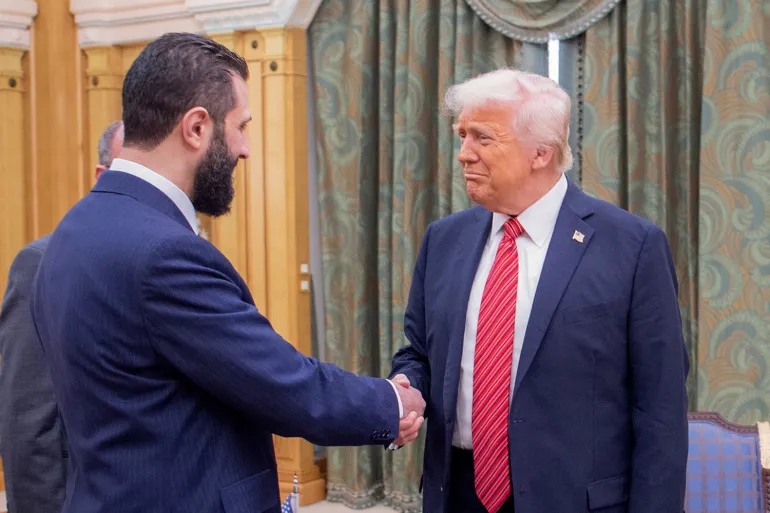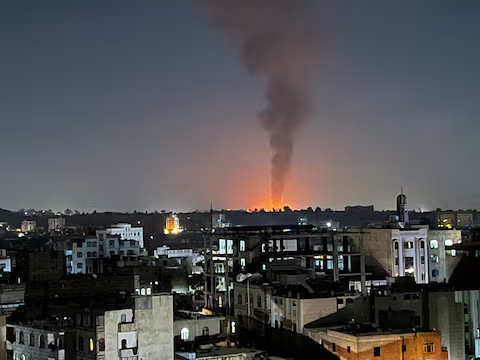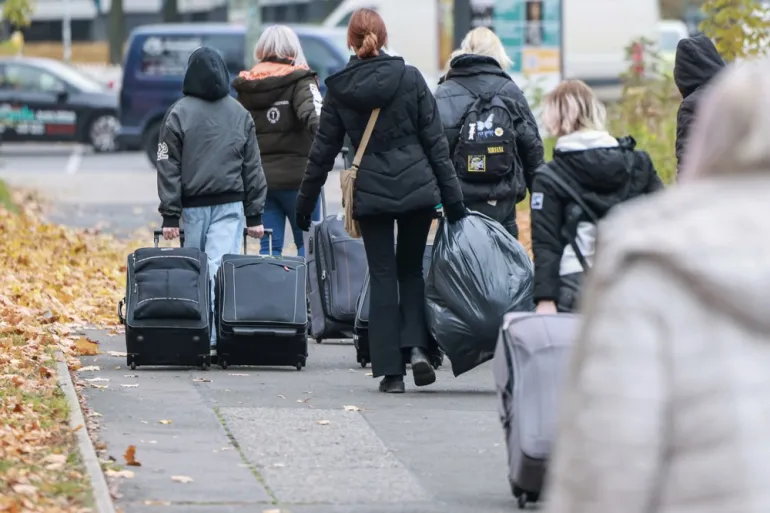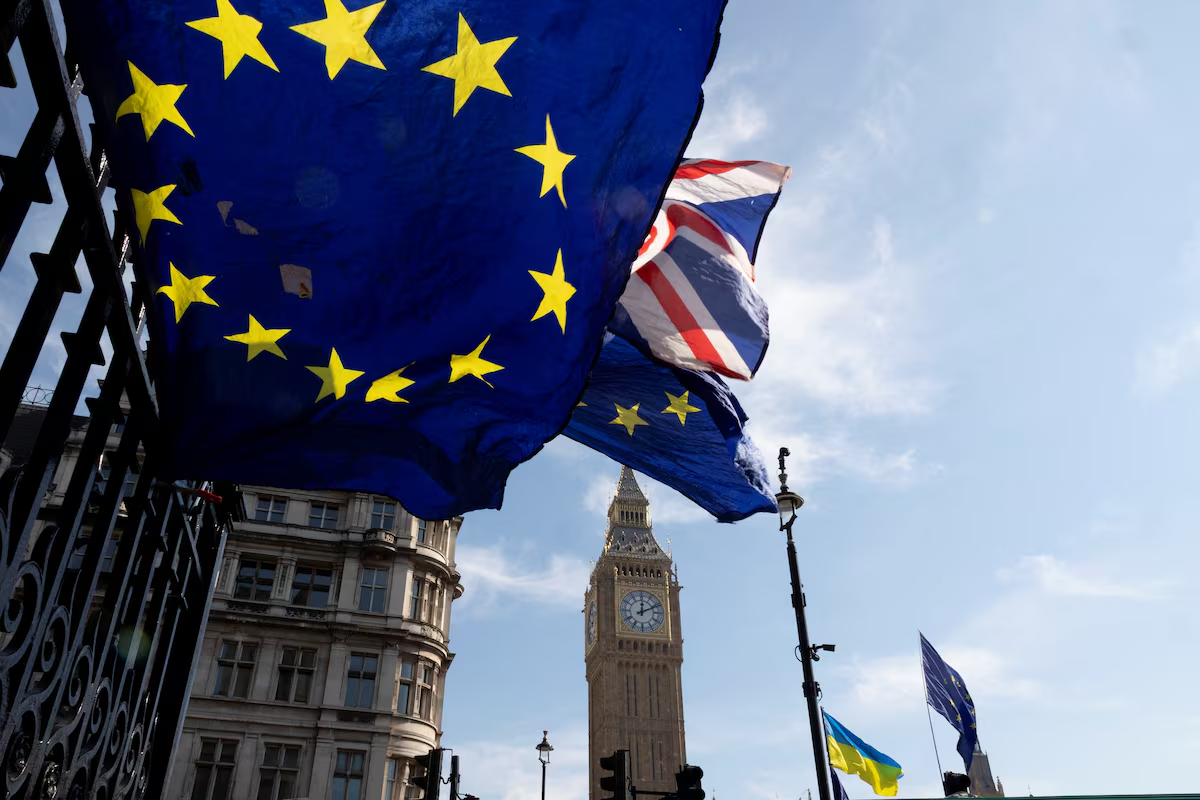In a historic development, U.S. President Donald Trump met with Syria’s interim President Ahmed al-Sharaa on May 14, 2025, in Riyadh, Saudi Arabia. This encounter marks the first meeting between leaders of the two nations in 25 years and signals a potential shift in U.S.-Syria relations.
Background of the Meeting
The meeting took place during a summit between the United States and Gulf Cooperation Council (GCC) leaders. Photos released by Saudi state media showed President Trump and President al-Sharaa shaking hands in the presence of Saudi Crown Prince Mohammed bin Salman. Turkish President Recep Tayyip Erdoğan also joined the meeting virtually.
Key Discussions and Proposals
During the meeting, President Trump announced the U.S. would lift all sanctions against Syria, stating this move would provide Syria with “a fresh start.” He also urged President al-Sharaa to:
Deport individuals identified as “terrorists.”
Sign the Abraham Accords to normalize relations with Israel.
Assume responsibility for ISIS detention centers in northeast Syria.
The White House emphasized that these steps are crucial for Syria’s reintegration into the international community and for ensuring regional stability.
Reactions and Implications
Al Jazeera’s correspondent in Riyadh described the lifting of sanctions and the meeting as significant developments that could grant the new Syrian authorities greater international legitimacy. The decision is also expected to encourage GCC countries to provide financial aid to Syria, which had been previously hindered by U.S. sanctions.
In Damascus, Al Jazeera’s reporter noted that the 33-minute meeting represents a major diplomatic breakthrough, highlighting the potential for improved U.S.-Syria relations. However, challenges remain, particularly regarding Syria’s potential agreement to the Abraham Accords and normalization with Israel.
Conclusion
The meeting between President Trump and President al-Sharaa marks a pivotal moment in U.S.-Syria relations, with the potential to reshape the geopolitical landscape of the Middle East. While the lifting of sanctions and discussions on regional cooperation signal progress, the path to full normalization will require careful navigation of complex political dynamics.
Source; Al Jazeera



